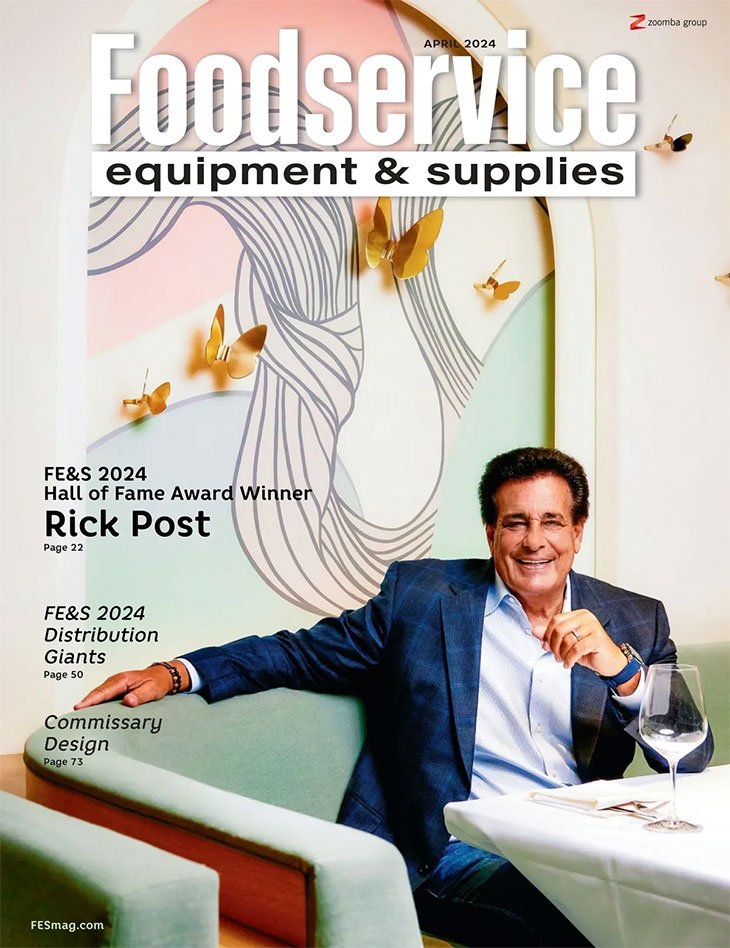A guest will visit a restaurant for the first time either by choice or by chance. But any subsequent visits are all by choice. That's why, when trying to earn repeat business, which is so important to all of us, no detail is too small for us to overlook. And we choose to partner with vendors that share this philosophy.

We are a multiconcept operator serving Minnesota's Twin Cities. Each of our six —soon to be seven — locations operates in the casual dining segment. Generally speaking, we operate urban diner concepts that serve breakfast, lunch and dinner and, in some cases, late night cocktails.
Most of our regulars consider our restaurants neighborhood joints, which is great because we want our locations to feel like their second kitchen, so to speak. Our menus consist of dishes that are 95 percent house made and reasonably priced. These attributes allow guests to frequent our restaurants a couple times a week and eat something different beach time without blowing their budgets.
Our company model is successful because we focus on guest loyalty and driving repeat business in our communities. We will get some special occasion business but if we were just a birthday or an anniversary place we would not be here next year. That's not our model.
Across our portfolio of restaurants we place tremendous value on hospitality, relationships, community and achievement. These values are at the core of our success and they shape our approach on a transaction by transaction basis.
So we try to make a strong first impression that really drives home who we are. We want to engage the guest and everyone in their party. It is all about being authentic during our guest interactions. People know when you are genuine and you have to look them in the eye. And you have to show that you are responsive to them, which is one reason why we try to get them a drink within the first two minutes of their visit.
The restaurant environment needs to be clean and comfortable. And if the guest comments about a lack of cleanliness, we are not doing our job. This is a challenge for any restaurant but in high-volume operations like ours where the tables can turn seven or more times a day there are so many more opportunities to make a mistake.
To generate repeat business guests have to feel that they trust us. Coming in and thinking you might leave with a food borne illness should not be a guest's concern. They immediately downgrade the experience if there is something floating in their water glass or a remnant of food on their fork. It detracts from the relationship. We want to wrap our guests in a warm blanket of hospitality, and we want them to trust that when they come in they will have a good experience that includes clean tableware, glassware and something satisfying to eat.
Oftentimes people in our industry will say this is a relationship business, and they are right. But what many fail to grasp is that the relationship aspect of the business applies to more than our guests. We have to have relationships with each and every staff member and with our vendors.
That's why my partners and I make it a point to meet with every new hire. We take a great sense of pride in our business and our neighborhood and try to instill that in all of our staff.
Every position in our restaurant receives some form of training. By not training your staff you are not helping them to be confident, which means you are using your guests as guinea pigs. Proper training can make or break an experience.
For example, our bartenders know the expectation is that they will wash all of their fruit for garnishes. We are focused on craft beers, and a couple of years ago we installed a rinser at the bar and now we rinse each glass before pouring a beer to help ensure we provide our guests with the highest quality product we can.
It's true that there is no revenue tied to training — that is until a mistake is made. Then you have to backpedal and that can cost you both money and credibility. You can never eliminate all the mistakes, but through training and preparation we can prevent some of them from happening.
We opened our first store in 1993 and at the time there were six or eight places in the area competing against it. Today there are 20 or more competitors in the area and there seems to be a new restaurant opening every week. So if people have food particulates on their fork, they don't have to come back because there always seems to be a new kid on the block.
When it comes ot our vendors, I want to know that what I order from them will be right. As an operator, I want to know that my dishwasher is operating correctly and if it is not, someone will come take care of me. Anyone who has had to go back to the three compartment sink and wash dishes by hand knows how important the relationship with your vendor is. We know we can call our vendor when that happens, even on a Saturday, and they will come fix it.
To me, value means I am paying fairly for a product, and I am getting the level of service that allows me to focus on serving our guests as well as all the details that go into doing so.
I don't want to know the technical side of dishwashers or other pieces of equipment. I want to focus on the quality of the food and on our guests and know that our vendors are doing what we need them to do. That's one of the reasons we only partner with certain vendors.
It is a lot of work to switch vendors, so if you find someone that is good, you stick with them. Switching vendors is time consuming and that becomes money consuming. The margins in this business are slim enough that they do not leave a lot of room for dilly-dallying around with products that don't work.
Ultimately, the foundation for any good relationship is trust.




